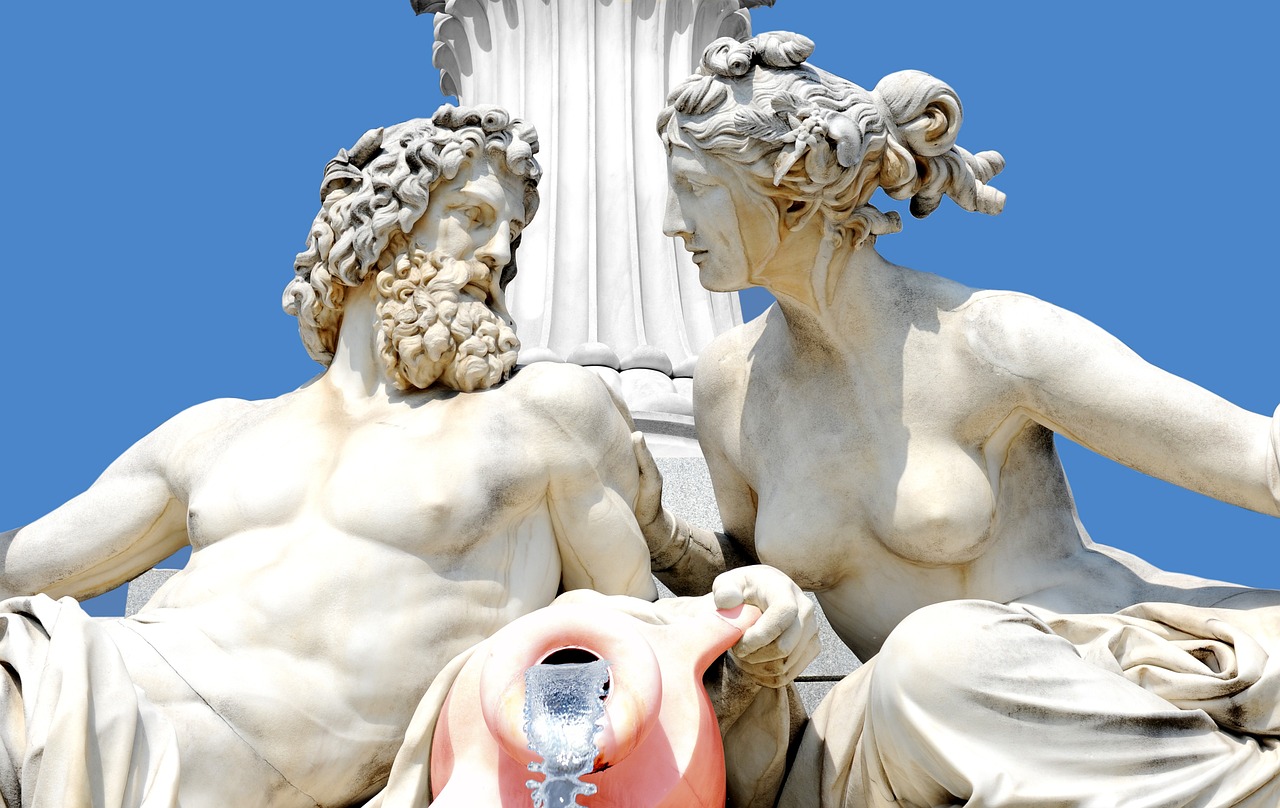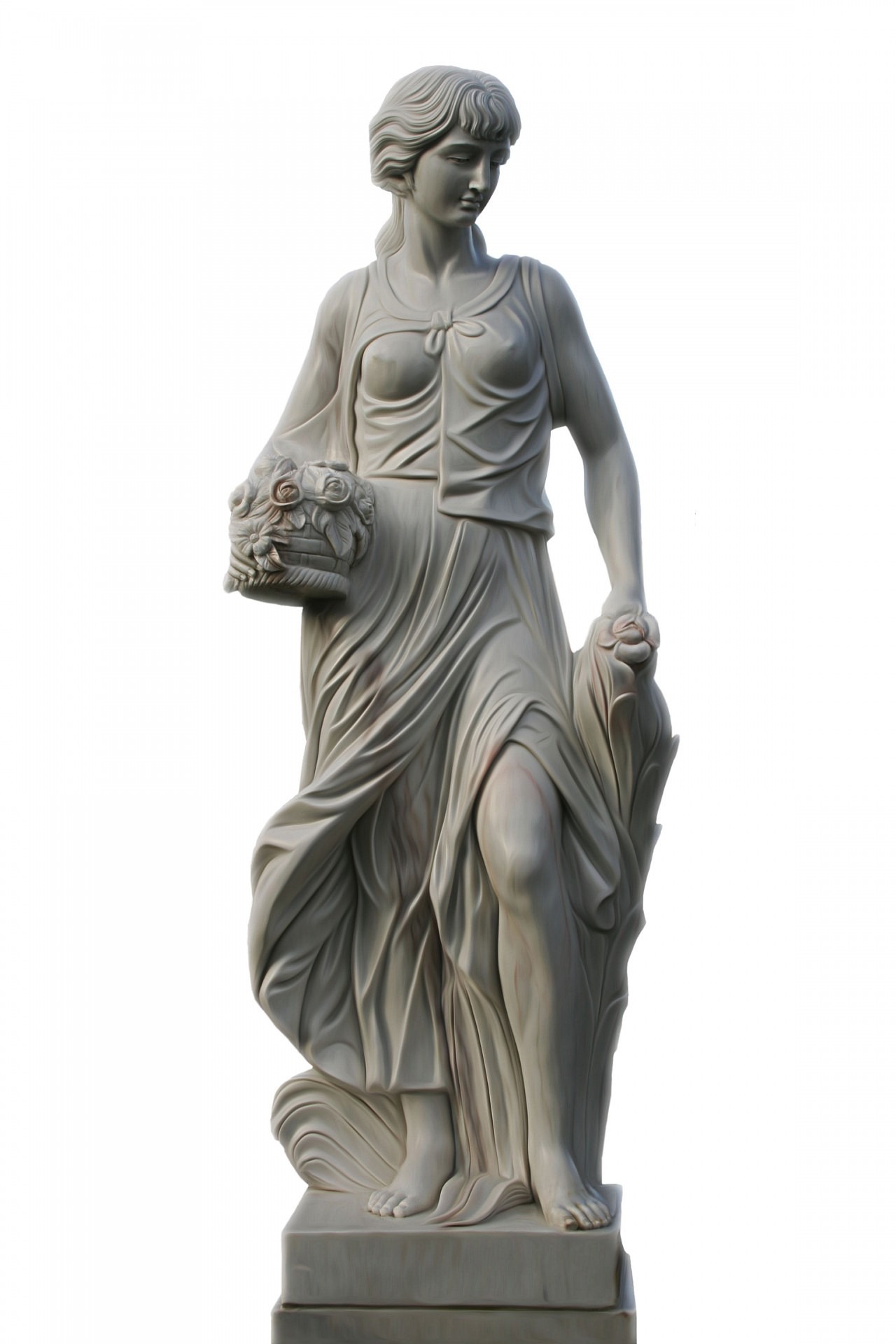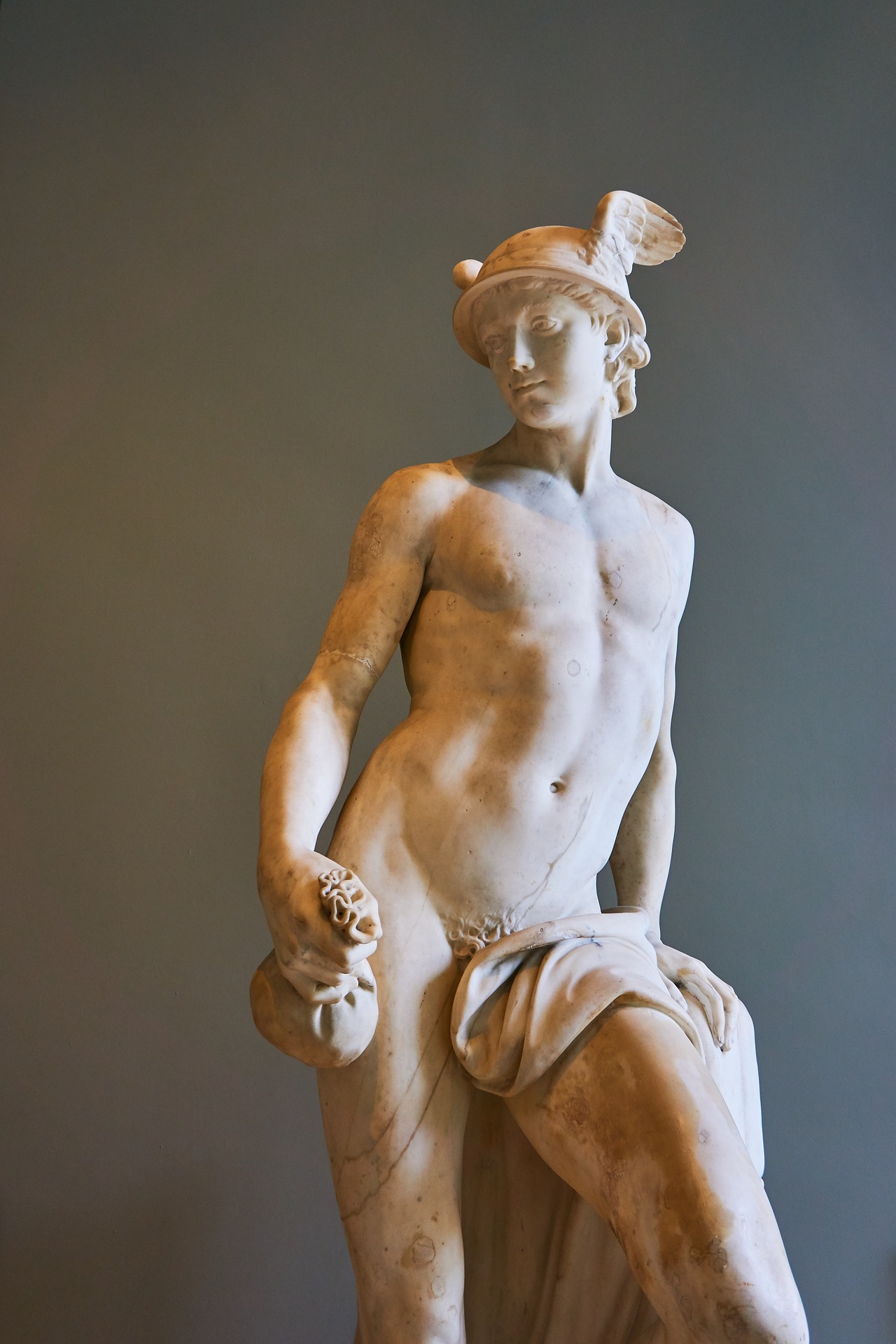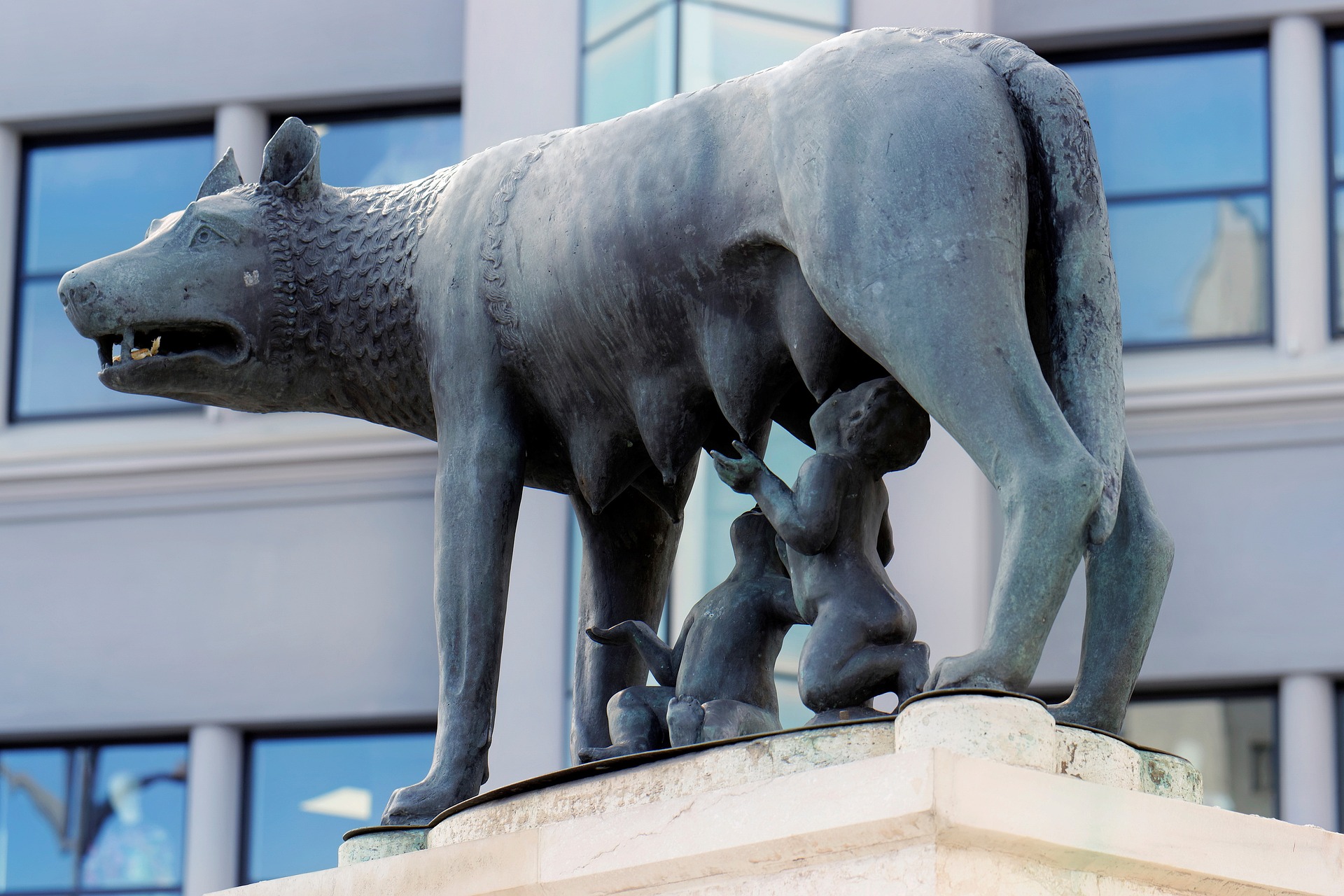Abeona and Adeona come from Roman mythology, which, among other elements, contains traces of the modern Italian culture. If you are anything like us, you want to know everything you can about the gods and goddesses of that period. In fact, as someone who loves the Italian language and culture, as well as mythology, we share with you all the details about the origin and meaning of the now practically forgotten deities Abeona and Adeona.
After learning about Abeona and Adeona (Adiona), you will be equipped with more knowledge about Roman goddesses. Additionally, this will make you ready to use or share it when the opportunity arises.
This article is about everything you need to know about Abeona and Adeona.
The Story of Abeona and Adeona
1. The origin of Abeona and Adeona
It is deemed that Abeona and Adeons (sometimes called Adiona) were ancient Italic deities, who then became goddesses of the Roman cults and mythology.
Firstly, they belonged to a group of autochthonous, “secondary” deities and lower-ranking spirits, who were also goddesses of growth and death of the world and human beings.

Secondly, those spirits had specific functions of judging everyday life situations and events. They arose from the embodiment of abstract properties and concepts. such as the creation of the world and life, plant and animal world, as well as man. Since these qualities and terms were often feminine in the Latin language, the number of goddesses from that period prevailed over the number of gods.
The oldest source that mentions Abeona and Adeona is the Latin book “On The City of God Against the Pagans” (De civitate Dei contra paganos). The book is often called ‘’The City of God’’ by Saint Augustine (original Latin name Aurelius Augustinus), a famous Christian theologian and philosopher. In it Saint Augustine refers to parts of the “Antiquities of Human and Divine Things” (Antiquitates rerum humanarum et divinarum) where these deities were mentioned, the book written by the Roman author Marcus Terentius Varro.
2. The creation and significance of Abeona and Adeona
The legend says that the Great Mother Goddess, the goddess of nature that gives life and death, i.e. the Earth, split into two goddesses creating Abeona and Adeona.

One goddess was Abeona, who watched over parental care and children going out into the world. She was also the goddess of parting, departures of children who took their first steps, went to school, or left their parents’ home for the first time, as well as the patroness of traveling merchants and adult children who left their homes for the first time.
On the other hand, Adeona (Adiona) was the protector of returns, safe and quick arrivals. As a result, she especially protected children returning from school to their parents’ homes, but also travelers going back home.
3. The meaning of Abeona’s and Adeona’s names
The name Abeona comes from the Latin abeo, which means I go. It is the first person singular of the verb abire in the present tense, which means to go, leave, or move away. The Latin verb abire is a compound of the prefix ab-, which has the meaning from, away, and ire, to go.
Therefore, Abeona is the one who leaves. She is associated with leaving home, but also with the birth of plants, animal world, and man.

Another aspect of this deity bears the name Adeona or Adiona, she who returns. The name comes from the Latin adeo, meaning I return. It is the first person singular of the verb adire in the present tense. The verb adire means to return, approach, speak, visit, to take over one’s inheritance. This relates to the notion of returning home again, and it is in connection with the responsibility for growth and death. The verb adire is derived from the prefix ad- (to, towards) and ire (to go).
In conclusion, Romans associated Abeona and Adeona with departure and arrival. They were goddesses who governed the journey.
4. The protective powers of Abeona and Adeona
People often prayed to both Abeona and Adeona together. Children would bring them spelt buns and milk, while young people and adults would offer them buns and wine.

Since Abeona was the goddess of departures, she was often invoked to ensure the safety of children as they left their homes and set out on journeys. People would also pray to her when traveling.
On the other hand, Romans called upon Adeona to ensure a quick and safe return of children to their families, as well as travelers returning home.
5. The evolution of Abeona and Adeona
Over time, other deities adopted some of the aspects of Abeona and Adeona.
One of them was Juno, the Roman goddess of women, marriage, childbirth, and protector of the family. The other one was Mercury, the patron of merchants and travelers.

Other religions ended up not accepting this group of deities.
6. The asteroid Adeona
A fun fact related to these deities is that today Adeona is the name of one of the asteroids!

The asteroid Adeona is a large asteroid that orbits between Mars and Jupiter, located in the main part of the asteroid belt. It is the primary member of the asteroid family of the same name, and it is visible from the mountains in the evening sky. The asteroid was discovered in the 19th century in New York, USA.
The astronomer who discovered it had previously gone on a trip around the world. He wanted to observe the transit of Venus between the Earth and the Sun. Once returned, he named the asteroid in honor of Adeona, the patron goddess of children and travelers.
7. The name Adeona today
Based on available records, only one female person in Austria has been given the name Adeona in the last 30 years.

In the Akan language of West Africa, the main language of Ghana, this name means “born on Tuesday”.
This article was all about the Italic and Roman goddesses Adeona and Abeona. We hope you enjoyed the reading and learned something new that enriched your knowledge about the Roman and Italian culture.
Our recommendations

This course will teach you about the myths of ancient Greece and Rome, including the creation of the universe, human nature, the relationship between gods and mortals, religion, family, love, sex, madness, and death. You will also learn about the way the Greeks and Romans themselves understood their own myths. Enroll and find out whether myths contain some universal truth or they are just entertaining stories that people like to tell over and over!

Can we really talk about ”religion” in ancient Rome? What was the origin of the gods? Embark on a journey to discover one of the least known aspects of the Roman world!
Buy here (Italian edition)

Roman Mythology: A Timeless Collection of Roman Myths and Legends
This is a very enjoyable, informative, and entertaining read, especially if you like reading about the mythology of ancient civilizations. From introducing the Roman deities, through Roman creation myth, foundation of Rome, to the life in Ancient Rome and Roman legends. Even if you’re familiar with some of the Roman myths, this book will have you glued to your seat!

This is a well-organized book, easy to read and full of numerous topics that are not common knowledge. It delves into the attributes of Roman gods, goddesses, and the mortals they interact with. You will find the stories engaging and fun!

The Divine Feminine in Ancient Europe: Goddesses, Sacred Women and the Origins of Western Culture
This extraordinary book explores the divine feminine in Europe in a detailed, thoughtful, and deeply poetic way. From the Bronze Age to the Grail legends of the Middle Ages, this beautifully written work will allow you to ponder the relationship of women to the spiritual reality of European life, past and present. It represents a fascinating examination of the history of the divine feminine in the western civilization.

Roman Myths: Gods, Heroes, Villains and Legends of Ancient Rome
If you love history and mythology, or simply a beautiful and interesting read, we would highly recommend this book! Not only will you learn about Roman mythology, but also how it was intertwined into everyday life and how it became part of Roman history. With beautiful, stunning illustrations and artwork, the story and the birth of Rome came to life.


